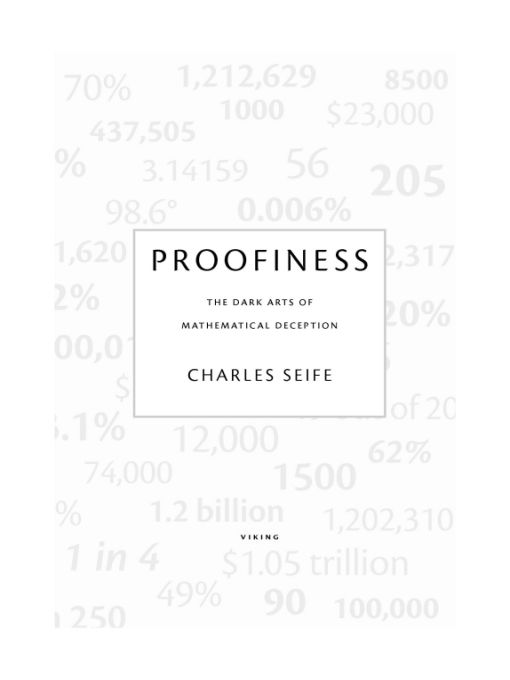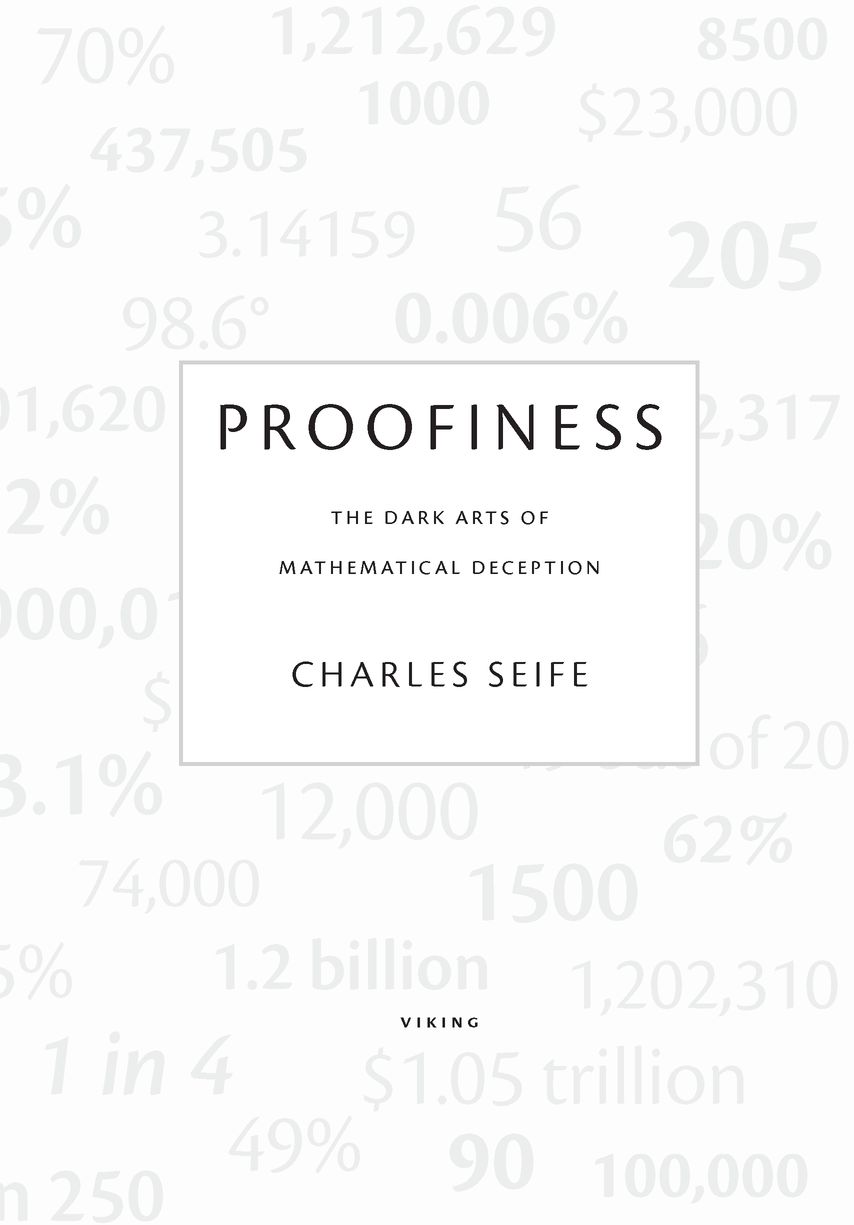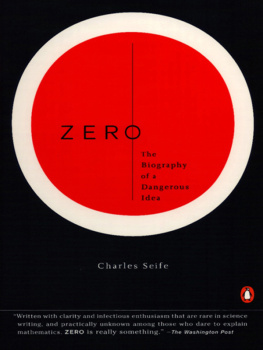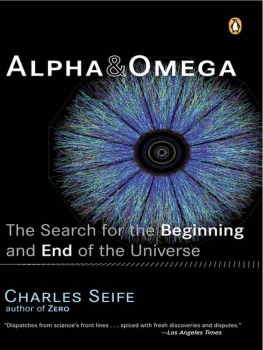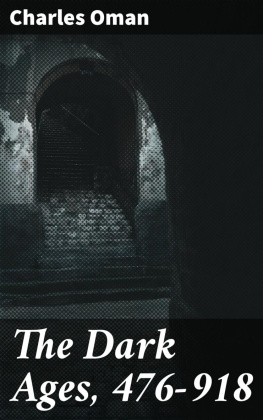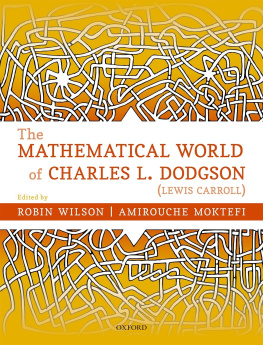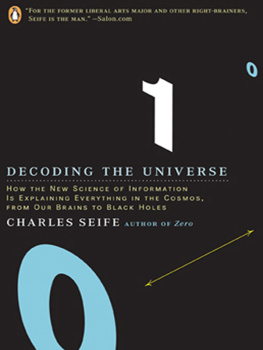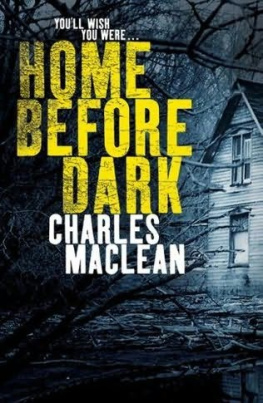Table of Contents
ALSO BY CHARLES SEIFE
Sun in a Bottle
Decoding the Universe
Alpha & Omega
Zero
INTRODUCTION
Proofiness
The American mind seems extremely vulnerable to the belief that any alleged knowledge which can be expressed in figures is in fact as final and exact as the figures in which it is expressed.
Richard Hofstadter, Anti-Intellectualism in American Life
In my opinion the State Department, which is one of the most important government departments, is thoroughly infested with communists.
This was not the sentencedelivered to a small gathering of West Virginia womenthat catapulted the little-known Wisconsin senator into the public spotlight. It was the next one.
As he held aloft a sheaf of papers, a beetle-browed Joe McCarthy assured his place in the history books with his bold claim: I have here in my hand a list of 205a list of names that were made known to the Secretary of State as being members of the Communist party and who nevertheless are still working and shaping policy in the State Department.
That number205was a jolt of electricity that shocked Washington into action against communist infiltrators. Never mind that the number was a fabrication. It went up to 207 and then dropped again the following day, when McCarthy wrote to President Truman claiming that we have been able to compile a list of 57 Communists in the State Department. A few days later, the number stabilized at 81 security risks. McCarthy gave a lengthy speech in the Senate, giving some details about a large number of cases (fewer than 81, in fact), but without revealing enough information for others to check into his assertions.
It really didnt matter whether the list had 205 or 57 or 81 names. The very fact that McCarthy had attached a number to his accusations imbued them with an aura of truth. Would McCarthy make such specific claims if he didnt have evidence to back them up? Even though White House officials suspected that he was bluffing, the numbers made them doubt themselves. The numbers gave McCarthys accusations heft; they were too substantial, too specific to ignore. Congress was forced to hold hearings to attempt to salvage the reputation of the State Departmentand the Truman administration.
McCarthy was, in fact, lying. He had no clue whether the State Department was harboring 205 communists or 57 or none at all; he was making wild guesses based upon information that he knew was worthless. Yet once he made the claim public and the Senate declared that it was going to hold hearings on the matter, he suddenly needed some names. So he approached newspaper magnate William Randolph Hearst, an ardent anticommunist, to help him compile a list. As Hearst recalled, Joe never had any names. He came to us. What am I gonna do? You gotta help me. So we gave him a few good reporters.
Even the assistance of half a dozen Hearst reporters and columnists couldnt give much substance to McCarthys list. When the hearings began in March 1950, he couldnt produce the name of a single communist working for the State Department. It didnt make any difference. McCarthys enumerated accusations had come at just the right time. China had just gone communist, and as the hearings finished, North Korea invaded the South. The United States was terrified of the rising tide of world communism, and McCarthys bluff turned him, virtually overnight, into a symbol of resistance. An obscure back-bench junior senator had become one of the most famous and most divisive figures in politics. His line about 205 communists was one of the most effective political lies in American history.
The power of McCarthys speech came from a number. Even though it was a fiction, that number lent credibility to the lies he was telling. It implied that the sheaf of papers he held in his hand was full of damning facts about specific State Department employees. The number 205 seemed to be powerful proof that McCarthys accusations had to be taken seriously.
As McCarthy knew, numbers can be a powerful weapon. In skillful hands, phony data, bogus statistics, and bad mathematics can make the most fanciful idea, the most outrageous falsehood seem true. They can be used to bludgeon enemies, to destroy critics, and to squelch debate. Indeed, some people have become incredibly adept at using fake numbers to prove falsehoods. They have become masters of proofiness: the art of using bogus mathematical arguments to prove something that you know in your heart is trueeven when its not.
Our society is now awash in proofiness. Using a few powerful techniques, thousands of people are crafting mathematical falsehoods to get you to swallow untruths. Advertisers forge numbers to get you to buy their products. Politicians fiddle with data to try to get you to reelect them. Pundits and prophets use phony math to get you to believe predictions that never seem to pan out. Businessmen use bogus numerical arguments to steal your money. Pollsters, pretending to listen to what you have to say, use proofiness to tell you what they want you to believe.
Sometimes people use these techniques to try to convince you of frivolous and absurd things. Scientists and others have used proofiness to show that Olympic sprinters will one day break the sound barrier and that theres a mathematical formula that determines who has the perfect butt. Theres no limit to how absurd proofiness can be.
At the same time, proofiness has extraordinarily serious consequences. It nullifies elections, crowning victors who are undeservingboth Republican and Democratic. Worse yet, it is used to fix the outcome of future elections; politicians and judges use wrongheaded mathematics to manipulate voting districts and undermine the census that dictates which Americans are represented in Congress. Proofiness is largely responsible for the near destruction of our economyand for the great sucking sound of more than a trillion dollars vanishing from the treasury. Prosecutors and justices use proofiness to acquit the guilty and convict the innocentand even to put people to death. In short, bad math is undermining our democracy.
The threat is coming from both the left and the right. Indeed, proofiness sometimes seems to be the only thing that Republicans and Democrats have in common. Yet its possible to counteract it. Those who have learned to recognize proofiness can find it almost everywhere, ensnaring the public in a web of transparent falsehoods. To the wary, proofiness becomes a daily source of great amusementand of blackest outrage.
Once you know the methods people use to turn numbers into falsehoods, they are powerless against you. When you learn to shovel proofiness out of the way, some of the most controversial topics become simple and straightforward. For example, the question of who actually won the 2000 presidential election becomes crystal clear. (The surprising answer is one that almost nobody would have been willing to accept: not Bush, not Gore, and almost none of the people who voted for either candidate.) Understand proofiness and you can uncover many truths that had been obscured by a haze of lies.
Phony Facts, Phony Figures
Facts are stubborn things; and whatever may be our wishes, our inclinations, or the dictates of our passion, they cannot alter the state of facts and evidence.

